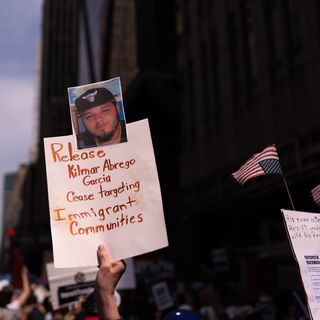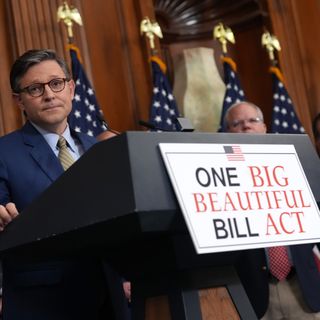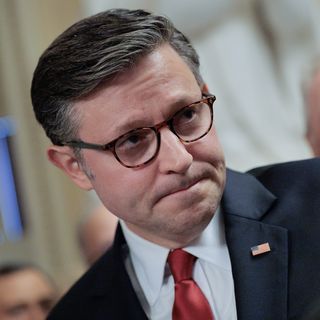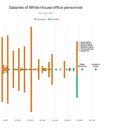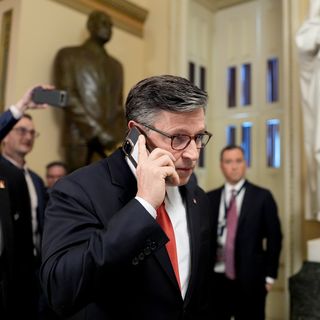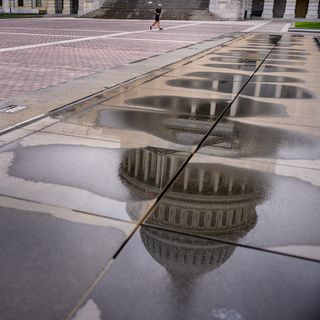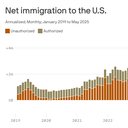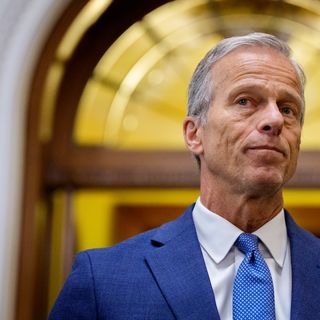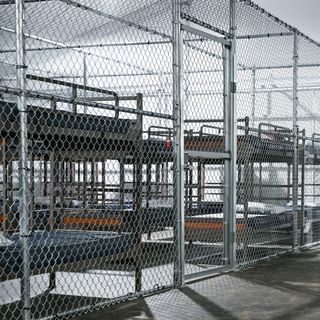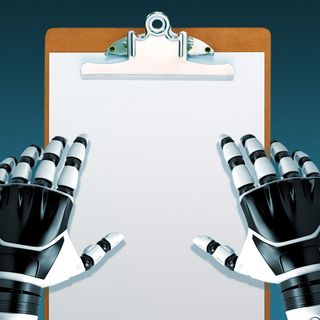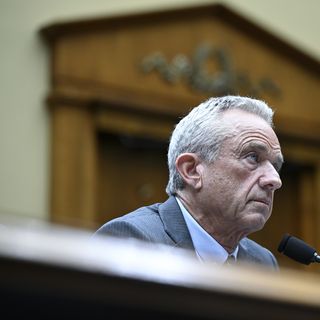Mike Johnson wages war of attrition against GOP rebels on Trump's "big, beautiful bill"
House Speaker Mike Johnson (R-La.) is fighting a battle of inches as he tries to secure the last few votes he needs to get President Trump's "big, beautiful bill" across the finish line.
Why it matters: Johnson is racing against the clock to meet Republicans' self-imposed deadline to pass the marquee tax and spending bill, which they hope will get to the president's desk by July 4.
- That deadline is at threat of slipping as right-wing hardliners and moderates dig in against the bill over aspects they find unsavory.
- Republicans on Thursday broke the record for the longest House vote as they held open a procedural vote for an astonishing seven hours and 24 minutes as they tried to cajole GOP holdouts.
- Johnson continued to huddle with holdouts off the House floor past midnight, and Trump has been working the phones in coordination with Johnson, the speaker said on Fox News.
State of play: Shortly after concluding their record-breaking vote, Republicans moved to advance the bill to a final vote on the House floor.
- But that key vote was being stymied by GOP defectors as of early Thursday morning, with nearly half a dozen Republicans voting with Democrats against advancing the bill — enough to kill it.
- Another group of around eight Republicans — mostly right-wing hardliners upset at how much the Senate version of the bill increases the deficit — hadn't voted yet as of Thursday morning.
- A group of key holdouts left the House floor just after 1:00am and headed back to their offices, including Rep. Tim Burchett (R-Tenn.), who told reporters "don't take a nap" yet. Burchett has still not voted on the rule.
What they're saying: "There's no cracking of skulls ... this is part of the process. We're tying up loose ends," Johnson told Fox News host Sean Hannity in an appearance late Wednesday night.
- The speaker said he "might keep [the vote] open a little while" because "among those 'no' votes I've got a couple of folks that are actually off-site right now, had to attend family affairs or events this evening, and so some of them are on the way back."
- That includes Rep. Brian Fitzpatrick (R-Pa.), the sole centrist "no" vote on the procedural motion, who rushed out of the House chamber shortly after voting.
- Rep. Thomas Massie (R-Ky.) who doesn't typically vote down the rule, switched his vote from yea to nay last minute, and has stayed firm in his opposition.
Between the lines: Rep. Victoria Spartz (R-Ind.) posted on X that she intends to support final passage of the bill, but voted against the procedural measure because of Johnson's "broken commitments."
- It's not typical for a member of the majority party to vote down the rule, and even more abnormal to vote down the rule but support final passage.
- Some members, like Spartz, are notorious for saying they're a no but voting yes.
- Rep. Ralph Norman (R-S.C.) vowed to vote no on Wednesday, but then voted yes on the rule.



